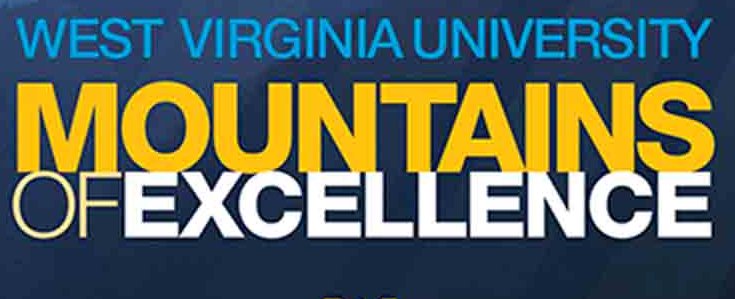Sex, Lies and Plagiarism
 As someone who deals with plagiarists on a daily basis, I know from personal experience just how messy it can be.
As someone who deals with plagiarists on a daily basis, I know from personal experience just how messy it can be.
Over the nearly ten years I’ve been dealing with plagiarism professionally, I’ve been threatened with dozens of lawsuits, received a few death threats and even been cyberstalked once or twice. For the most part, I’ve let it all go and forgotten about it. None of the lawsuits materialized (there really never was a case anyway) and while death threats or cyberstalking are unnerving, they never reached a level I felt I had to take further action.
However, I recently read the story of Anoop Shankar, a purported genius in the medical field that was caught fabricating his resume and claiming credit for papers he did not write. Shankar’s response, and the impact it had on his investigator, gave even me pause.
Because, while it’s hard to surprise someone who deals with liars and cheats regularly, this case certainly did. But within it is a lesson for everyone who pursues plagiarists and frauds.
The Story of Anoop Shankar
Earlier this month, NBC News reported on the case of Anoop Shankar who, 2012 was being considered for an appointment to the new “Chair of Excellence” at the School of Public Health at West Virginia University. The move would have been a major promotion for Shankar, who had been with the school since at least 2009.
On paper, Shankar was a brilliant physician and scholar, one who had gotten into India’s top medical school at the age of 21, the winner of a national academic talent contest in India and a top 3 graduate at his school. He’d also claimed to have written multiple papers and produced a large volume of research.
However, it was all lies.
As part of the vetting process for his promotion, Ian Rockett was given the task of verifying Shankar’s credentials. When he searched, problems immediately began to rise. Since an MD in India requires a dissertation, Rockett first search for that and found that, while an Anoop Shankar had written a paper by the title he claimed, the date was 1976, not 1996, meaning it was published when Shankar was just one year old.
That find led to 10 others and Rockett presented his findings. Despite limited time to investigate, the report was enough to get Shankar’s appointment postponed. Rockett, having completed his duties and filed his report with the school’s lawyers and the Office of Research Integrity, moved on to other things.
However, in August of that year, things took an even more serious turn. Two students connected with Shankar dropped in to talk with Rockett. Though Rockett says the meeting was a discussion about other research he had done, the two students accused Rockett of sexually harassing them, including making sexual and racial comments as well as sexual assault. They took their claims to the school’s Office of Social Justice, which investigated.
Rockett denied the allegations and hit back with a defamation lawsuit against Shankar and the two students. Rockett won the lawsuit and was awarded nearly $250,000 in damages, but eventually settled out of court for $45,000. The school also found no evidence of wrongdoing on Rockett’s part and dropped its investigation without taking action against him.
As for Shankar, he resigned from the school during the investigation but did go to work, at least for some time, at Virginia Commonwealth University, though that school now says he is no longer working there. However, WVU still has not made a public statement about Shankar nor has it worked to revoke his highly-prized O-1 visa for foreigners with “extraordinary abilities”.
While the story is an incredible one, it points very directly to the challenges that those who seek to root out plagiarism and fraud have to deal with. When you deal with some of the worst people in a given field, it’s inevitable that some will respond in less-than-ideal ways.
Why This Tale is Important
To be clear, there a lot of unanswered questions in this story. Why weren’t Shankar’s credentials vetted before he was hired? Why is the story only becoming public now? Why has his visa not been revoked?
But for those, such as myself, who deal with plagiarism and fraud, this story is more than tale of missed opportunities. It is a nightmare.
Rockett didn’t set out to discredit or shame Shankar. He was merely doing his job conducting a routine verification of Shankar’s credentials. This was, and still is, only a small part of his duties at the university.
Even when he was done, there was no grudge or animosity. He dropped off his findings and moved on. The real investigation was to be picked up by others. Yet, for his small role, Shankar and two of his students attempted to ruin Rockett’s personal life, his career and his reputation.
Fortunately, the effort failed miserably but it is easy to imagine how it could have worked and would have discredited him, gotten him fired and even cost him his marriage. All because he happened to be the person who, as part of his duties, discover false information in Shankar’s CV.
While most plagiarists and fraudsters don’t react as strongly as Shankar, the fact that any do should give those in charge of their detection pause for concern. As such, it’s important to think about how to protect yourself and what you can do if someone does begin to try and target you.
How to Protect Yourself
If you’re in a position where you regularly deal with plagiarists, copyright infringers or fraudsters, it’s almost inevitable that you’re going to be confronted with a someone who will lash out at you rather than admit their mistakes.
As such, you need to be prepared for this inevitable conflict and take a few basic steps to protect yourself.
- Communicate Only in Writing (If At All): If you must communicate with those you are investigating, do it in writing and by a means that is independently verifiable, such as email. Most of the time though, the less said the better.
- Practice Solid Security: Make sure to follow good cybersecurity practices including using strong passwords, two-factor authentication and so forth. While these efforts won’t stop a determined and skilled hacker, they will make you a more difficult target and lessen the likelihood you will be breached.
- Keep Good Records: Make a note of everything you’re doing and what you’re learning from it. Good notes can save you a great deal of grief if things turn hostile.
- Don’t Engage: If someone is upset with you and is coming after you, your best bet is to ignore them. Refuse to speak with them, request all correspondence in writing (as per above) and don’t try to argue with someone who is angry with you. Logic, reason and truth do not win such fights and if you get angry, you may say things that can hurt you. Don’t engage if you can at all avoid it. It only puts you at greater risk and prolongs the ordeal by keeping them upset longer.
- Consider Legal Action if Necessary: Finally, if the problem does go too far, consider either filing a lawsuit or contacting the authorities.
While it is not uncommon for plagiarists and fraudsters to lash out at those who catch them and try to discredit them, those efforts are usually short lived, especially if there aren’t any long-term consequences for their own actions such as litigation or long-term career damage.
However, Rockett’s case was something of a rarity. A formality of an investigation turned up information that would, in the end, destroy Shankar’s career and reputation. These long term consequences combined with men who are already committed to lying, can create a level of desperation not often seen.
In short, though Rockett did nothing wrong at all (in fact he seemed to have complied with all of the tips above perfectly as far as we know), he found himself in the crosshairs of a man very desperate to hang on to his ill-gotten career and was willing to completely destroy another human being’s life for the chance to do it.
Bottom Line
To be clear, Shankar is an extreme outlier. However, it should still serve as a reminder that, as plagiarism fighters and enforcers of ethical standards, we aren’t just enforcing rules and (in some cases) laws, but we are often times destroying businesses, careers and livelihoods.
While those gains may be ill-gotten, the destruction of them means that many who end up in the crosshairs of a fraud or plagiarism investigation will, inevitably, lash back to defend themselves.
While most won’t take things as far as Shankar and concoct an elaborate ruse to accuse their investigator of potentially criminal acts, it’s not uncommon for plagiarists to make threats or attempt to harm the reputation of their accusers in other ways.
In short, just because you feel comfortable that you’re doing the right thing doesn’t mean others won’t try to drag you through the mud. Whether you’re destroying their career, their business or just their site, plagiarists do not always respond well when being caught.
It’s a fact well worth remembering.
Want to Reuse or Republish this Content?
If you want to feature this article in your site, classroom or elsewhere, just let us know! We usually grant permission within 24 hours.
